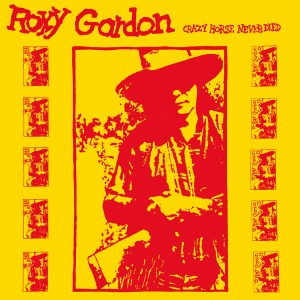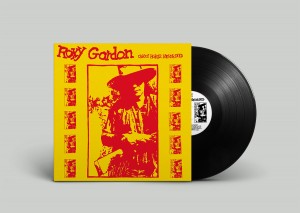Roxy Gordon
Crazy Horse Never Died


About this item
The Choctaw, Assiniboine, and Texan poet, journalist, visual artist, American Indian Movement activist, and musician Roxy Gordon (First Coyote Boy) (1945–2000) was above all a storyteller, known primarily as a writer of inimitable style and unvarnished candor, whose wide-ranging work encompassed poetry, short fiction, essays, memoirs, journalism, and criticism. Over the course of his career he recorded six albums, wrote six books, and published hundreds of shorter texts in outlets ranging from Rolling Stone and The Village Voice to the Coleman Chronicle and Democrat-Voice, in addition to founding and operating, with his wife Judy Gordon, Wowapi Press and the underground country music journal Picking Up the Tempo. Along the way he cultivated close friendships with fellow Texan songwriters such as Lubbockites Terry Allen, Butch Hancock, and Tommy X. Hancock, as well as Ray Wylie Hubbard, Billy Joe Shaver, and, most famously, Townes Van Zandt, whom he called his brother. Although his work covered a vast array of topics exploring strata personal, local, global, and cosmic alike, Gordon’s primary subject as a writer, musician, and visual artist was always American Indian culture, specifically the ways it collided and coexisted with European American culture in the South and West and within the context of his own life and braided identity.
The ten songs on Crazy Horse Never Died, his first officially released and distributed album, were recorded in Dallas in 1988. “Songs” is perhaps an imprecise taxonomy for what Roxy captured on this and his other albums, all of which remain out of print or were released in instantly obscure limited editions of homebrew cassettes and CD-R’s. (Paradise of Bachelors plans to reissue remastered, expanded editions of his catalog; Crazy Horse is the first.) He only occasionally attempted to sing, and his musical recordings are primarily corollaries of, and vehicles for, his poems. His sharp West Texan drawl, tinged by formative years of reservation living in Montana and unmistakable once you hear it high, lonesome, flat, and cold-blooded as a bare rusty blade instead patiently unfurls in skewed sheets of anecdotal verse and discursive narrative rants. His songs are essentially recitations over backing tracks of fingerpicked guitars, rubbery washtub bass, and buzzing, oscillating keyboards. On the stark yellow and red jacket of Crazy Horse, which he designed himself, Gordon describes these recordings as innately ambivalent in terms of form, content, and identity: These are poems and/or songs about the American West, white and Indian.
Crazy Horse Never Died comprises songs that span the personal and political arcs of his writing practice and the poles of his native and white ancestries. His introduction to the almost-title track in the strikingly illustrated poetry chapbook supplement to the album (included in the LP edition) draws explicit parallels between the oppression and displacement of Palestinians by Zionists and the similar treatment of Native Americans by Europeans, justifying the historical necessity of resistance to racist imperialism through terrorism.
In his 1984 essay “Breeds,” from the fine collection of the same name, he concludes with a note of hope:
The voices of these continents are not stilled because, for a few centuries, this land is overrun by human beings who cannot hear. Over years of cultural and racial genocide, over centuries of lies and misdirection, That Which Is still calls . . . and the old American blood in us listens.
Roxy’s friend and fellow poet-turned-musician Leonard Cohen had kind words for Breeds, writing: “It is strong. The word goes out. Can a change come on dove’s feet?” Bestir that old American blood and listen.
TRACK LISTING
A1. Crazy Horse Is Alive
A2. Junked Cars
A3. Living Life As A Living Target
A4. Flying Into Ann Arbor (Holding)
A5. I Used To Know An Assiniboine Girl
B1. The Hanging Of Black Jack Ketchum
B2. The Western Edge
B3. An Open Letter To Illegal Aliens
B4. The Texas Indian
B5. Why Do I Miss Someone?
